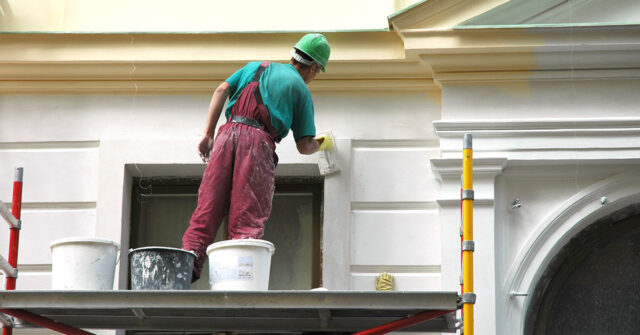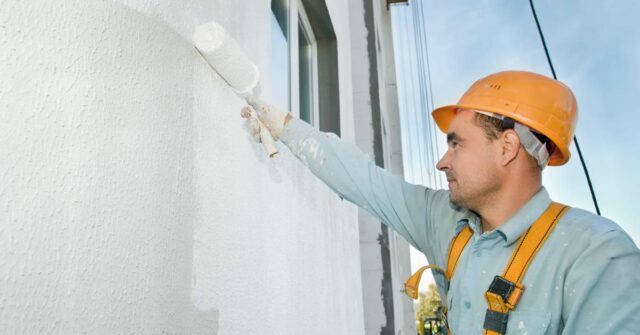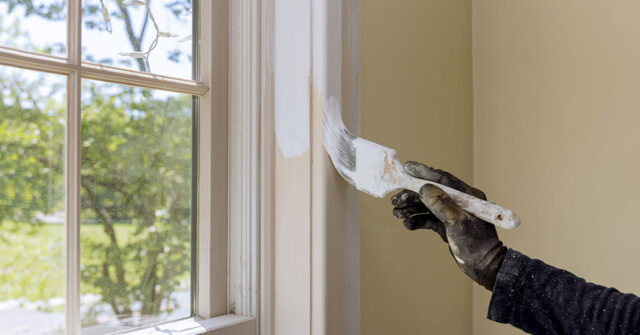In New South Wales, becoming a professional painter isn’t just about wielding a brush and picking the right colour.
To work legally and maintain high industry standards, a painter must meet specific licensing and certification requirements.
Whether you’re an aspiring painter or a homeowner seeking professional services, understanding these requirements is crucial.
Introduction to Painting Licensing in NSW
Licensing plays a pivotal role in the painting profession in NSW. It not only validates a painter’s skills but also protects consumers by ensuring services meet strict standards.
Let’s dive into what licensing entails and why it matters.

Why Licensing Matters for Painters in NSW
A painting license is more than just a piece of paper. It’s proof that a painter has the skills, training, and knowledge to perform their job safely and effectively.
Licensed painters are also held to compliance standards, which safeguard consumers from subpar workmanship or unsafe practices.
Understanding Certification and Its Importance
Certifications complement licenses by demonstrating specific skills or competencies.
For painters, certifications often involve completing recognized training programs that cover techniques, safety protocols, and modern painting tools.
Who Needs a Painting License in NSW?
Not everyone who handles a paintbrush requires a license. However, specific circumstances make licensing mandatory under NSW regulations.
Legal Requirements for Painters
In NSW, a painting license is required for any individual or business undertaking residential painting and decorating work valued at over $5,000 (including materials).
This ensures large-scale projects that meet the state’s building standards.
Exemptions and Special Cases
For minor works under $5,000 or jobs that don’t require structural changes, a license might not be necessary.
However, many professionals still choose to obtain certification to boost their credibility and attract more clients.
Steps to Obtain a Painting License in NSW
The process of acquiring a painting license in NSW is straightforward if you meet the criteria. Here’s what you need to know.
Eligibility Criteria for Aspiring Painters
Applicants must be at least 18 years old and demonstrate relevant skills through formal qualifications or extensive experience in painting and decorating. A clean criminal record is also required for most licenses.
Required Qualifications and Experience
Qualifications such as a Certificate III in Painting and Decorating are often essential. These programs provide hands-on training and theoretical knowledge about materials, techniques, and safety regulations.
Application Process and Documentation
The application process involves submitting proof of qualifications, a completed application form, and payment of the relevant fee to NSW Fair Trading.
Documentation such as references and evidence of completed projects may also be required.

Educational Pathways and Certifications
Becoming a licensed painter starts with acquiring the right skills and knowledge through accredited educational programs.
Courses Offered by TAFE NSW and Other Providers
TAFE NSW is a leading provider of vocational training in the state.
Courses like Certificate III in Painting and Decorating teach both foundational and advanced painting techniques, alongside workplace safety and customer service skills.
How Certifications Support Licensing
Completing these courses not only equips you with essential skills but also satisfies the eligibility requirements for obtaining a license.
Employers and clients are more likely to trust a painter with certified qualifications.
Maintaining Your Painting License
After obtaining a license, staying compliant is an ongoing responsibility. It’s important to stay updated with industry standards and renewal processes.

Renewal Requirements and Deadlines
Licenses must be renewed periodically, typically every 1 to 3 years. Renewal involves paying a fee and, in some cases, providing evidence of continued professional development or work experience.
Adhering to NSW Fair Trading Regulations
NSW Fair Trading monitors licensed painters to ensure compliance with safety and quality standards. Breaches can lead to penalties, suspension, or loss of your license.
Benefits of Hiring a Licensed Painter
For homeowners and businesses, choosing a licensed painter offers several advantages that go beyond just a well-painted wall.
Assurance of Quality and Compliance
Licensed painters follow strict guidelines, ensuring the work is safe, durable, and visually appealing. This minimizes risks associated with poor workmanship.
Protecting Consumers in Sydney
In Sydney, regulations ensure licensed painters are insured, providing consumers with financial protection if something goes wrong. This peace of mind is invaluable for any project.

Conclusion
Licensing and certification are critical components of the painting profession in NSW. They protect consumers, uphold industry standards, and provide a pathway for painters to demonstrate their expertise.
Whether you’re stepping into the trade or hiring a professional, understanding these requirements makes all the difference.
Key Takeaways on Licensing and Certification
Licensed painters bring skill, safety, and professionalism to every project. For aspiring painters, investing in proper training and licensing opens doors to a thriving career.
Encouragement for Aspiring Painters
If you’re considering a career in painting, now is the time to take the leap. With the right qualifications and a commitment to excellence, you can build a successful and respected trade.





